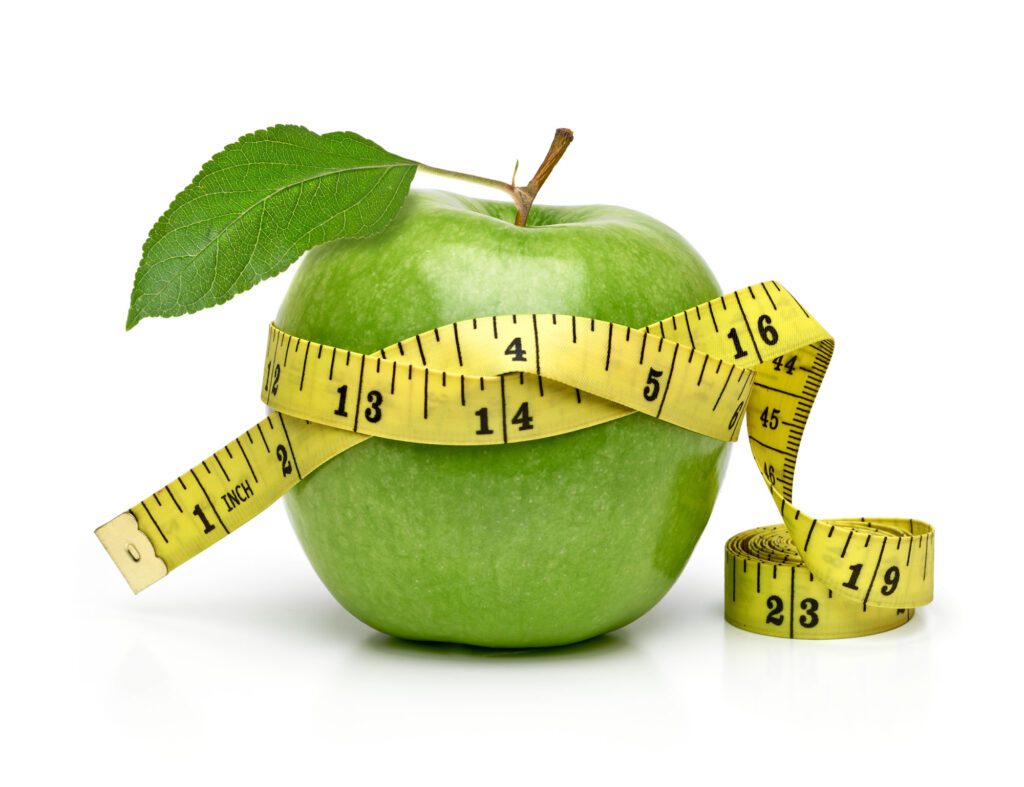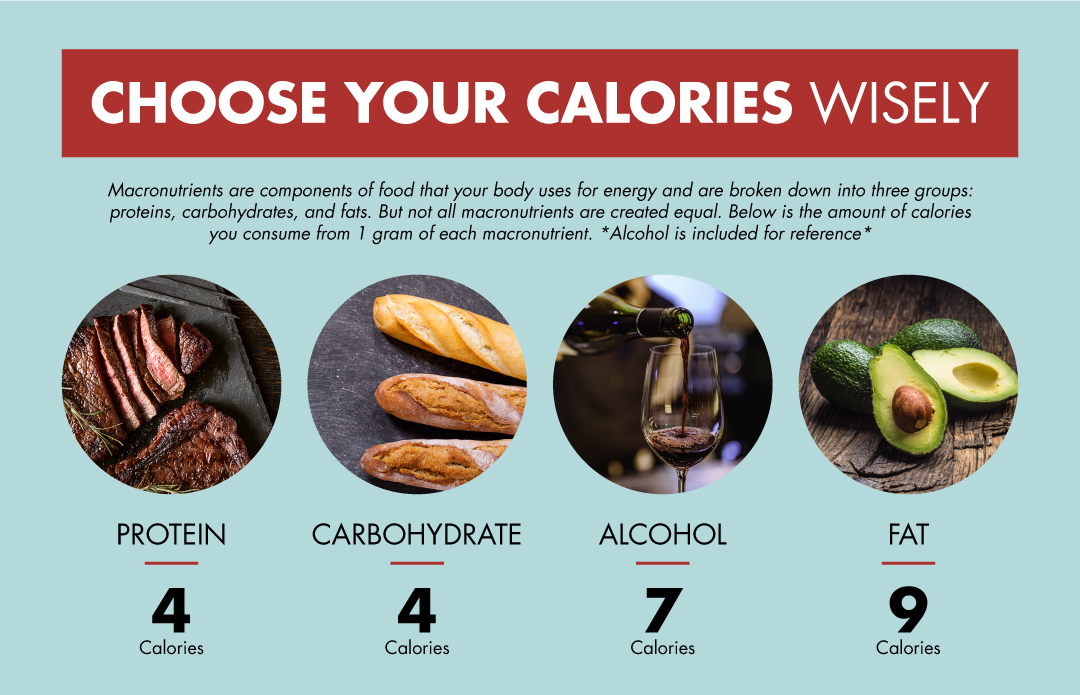In the weight loss world, calorie counting or tracking your caloric intake is a common practice that holds high significance with weight loss success. But why? Unlocking this fundamental concept is instrumental to implementation during your weight loss journey. Now, don’t be afraid of the word “calorie”. Although the term may possess negative connotations, conjuring images of anxious days measuring out your food for each meal, the word itself is relatively harmless. In essence, it’s defined as “a unit of energy, often used as a measurement of the amount of energy that food provides,” according to Merriam-Webster.
When you eat food it consists of calories that are metabolized or ‘burned’ to provide energy for all of our bodily functions. If you eat more calories than you burn they will be stored as fat. If you eat less calories than your body needs for energy, then your fat stores will be used for energy resulting in the loss of body fat.
Are all calories equal? Yes and No
Are all calories equal? Yes and no. A calorie will always produce the same amount of energy but different macronutrients (macro’s) contain different amounts of calories.
For example, compare 1 gram of a carbohydrate, a protein, a, fat, and an alcohol. The carbohydrate and the protein each contain 4 calories. However, the fat contains 9 calories and the alcohol contains 7 calories. The fat and the alcohol are approximately double the amount of calories for the same size as the carbohydrate or protein!
So, when comparing the four groups together at equal amount of sizes, if you eat fat or drink alcohol, you are consuming more calories than an equal amount of a protein or a carbohydrate! This means it will take your body more energy to ‘burn off’ these additional calories.
More on proteins, fats, and carbohydrates
Now to complicate things a bit more, when you eat a healthy fat or a protein it does not cause a rise in blood sugar or a spike in the hormone insulin which tells your body to store fat. Protein foods and healthy fats also cause you to feel full and more satiated or satisfied. A high protein diet requires more energy to break down in your body, resulting in a higher metabolism. In addition, a study showed that people who ate 30% of their daily calories from protein ate almost 500 less calories per day1. Healthy fats include and are not limited to: avocados, nuts, and chia seeds.
On the other hand, carbohydrates increase both blood sugar and insulin which not only can cause your body to store fat, but can cause an overproduction of insulin leaving you with a blood sugar crash and an increase in hunger and appetite. However, a limited amount of healthy carbohydrates in your weight loss plan is necessary for your daily calorie intake. Healthy carbohydrates include fruits and vegetables which contain water and fiber; this content allows you to feel fuller on less calories.
Conclusion
The good news is that by eating a diet with the proper balance of macro’s you can lose weight and maintain a healthy weight for life. Whether you choose our signature RM3 ® program or our flexible RM Lifestyle plan, the Medical Providers at Red Mountain Weight Loss can design a plan for you with the perfect balance of macronutrients to help you achieve your healthy goal.
1 Gunnars, Kris. “How Many Calories Should You Eat per Day to Lose Weight?” Healthline. https://www.healthline.com/nutrition/how-many-calories-per-day#tips-to-eat-fewer-calories
Our dedicated team is here to support you as you take the first step on your journey towards a healthier and happier you. Book your consultation now to get started.


















